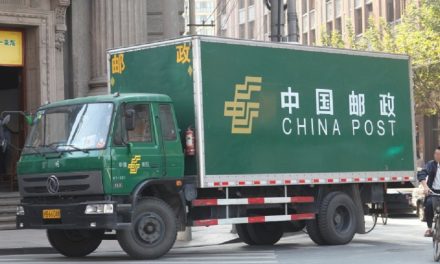
China Post: The wheels of change grind slowly
One Post or 30?
This brief review on China Post is based on my own perspective of being based outside mainland China, in Hong Kong, but involved in direct mail and bulk post delivery both within China and into China from outside the country.
The first reality we all confront is that “China Post” doesn’t really exist! We are dealing in practice with Shanghai Post, Beijing Post, Guangzhou Post and 28 other autonomous postal entities which essentially compete with each other.
Historically this has led to problems for the direct mail industry. National direct mail campaigns are dropped with one provincial postal administration which delivers more or less in full within its own area. However, where mail is shipped to other China Posts in other areas for local delivery without each of those local Posts sharing in the income, then frankly not all the mail gets fully delivered. As Jos Birken (Consultant to TNT) aptly put it: “The Chinese don’t like to do the work if someone else is receiving the payment”!
However, changes are slowly being applied. For instance, some (but definitely not all) bulk mail across provincial borders is now being franked with the destination Post’s indicia so this Post will not only be delivering the mail but also sharing in the income.
A general observation in the market-place is that China Post’s top management are active in the UPU, committed to building a modern, efficient postal operation in China and keen to encourage the growth of direct mail.
But the wheels of change grind slowly. Top postal management in China may be very supportive and say all the right things to direct mail industry leaders, but problems continue to arise in the ranks where local managers and postal staff have absolutely no understanding of direct mail whatsoever – or its potential value to the postal industry.
Apart from the “unreliable delivery across provincial borders” issue described above there are two other important issues not widely understood within China Post which may take time to change.
Problems with Undelivered Mail
There is tremendous address churn within China amounting to around 30% changes of address per year. As their wealth grows, urban Chinese like to upgrade from the building or street in which they live and move into more affluent areas.
A lot of mail doesn’t get delivered simply because address data quickly becomes obsolete. The Chinese tend not to advise you of their new address details and “undelivered mail” is not returned in full to the mailer. Officially about 1% or 2% of non-delivered mail items get returned — but in reality the bulk of “undelivereds” are simply not returned at all.
For this reason mailers find it impossible to continually clean and update the accuracy of their address files, which is one reason why it’s taking time for the direct mail industry in China to get off the ground.
Misunderstanding about ‘Data ‘
Operational staff at China Post simply don’t understand how direct mail works or the strategy of acquiring a customer through a postal or email response and then building a relationship with that customer. Instead, a huge amount of effort is being made in Beijing (and in Guangzhou) to build simple databases with marginal segmentation. Beijing Post currently has a national file of 56 million addresses (and growing). The problem is that this file (and other similar files held elsewhere by China Post local offices) do not work for direct mail offers. Automobile manufacturers, for instance (and others) use it for branding and exposure but it does not perform as a response file. The mantra at management level in China Post is “Data, Data, Data” – but they don’t understand that address data alone (without a response history) is worthless. That penny really hasn’t dropped yet!
Growing Competition
While the direct mail industry hasn’t yet got off the ground in China (due to these and other reasons), China’s mail and express industry as a whole is also trying to find its feet.
China Post has now lost 60% or more of its courier and express delivery market to major international players such as Fedex, UPS, DHL and TNT — and there are said to be around 1,000 local private mail and express delivery companies in China chipping away at China Post’s mail monopoly.
China Post recently announced they intend to enforce their monopoly on all mail items which weigh below 350 gms. If strictly applied, this would threaten the existence of many private delivery companies, but there are those in China who do not believe the public is best served by China Post having a full monopoly on mail delivery. For instance, one group (the Chinese People’s Political Consultative Conference) announced they would support an “Anti-Monopolization Law” as soon as possible to try and prevent this happening.
Meanwhile mail will continue to be delivered by private companies in China outside the monopoly, and delivery systems continue to be set up actively which may (or may not) infringe any monopoly which may (or may not) eventually be introduced!
Regulatory change
It has also been announced that the State Postal Bureau (under the Ministry of Information Industry) will hold a regulatory role in future making postal rules and setting standards, but this role will be wholly separate from the commercial and postal service operational divisions which will be managed by the China Post Group Company.
The postal savings division (which used to generate 39% of China Post revenues) has now been split off as the China Post Savings Bank with around US$152 billion (1.23 trillion yuan) in deposits and 36,000 outlets.
The “Post Savings Bank” and the “China Post Group” companies will now both operate as separate commercial entities quite independent of and no longer subject to the control of central government. This is an encouraging signal for the future.
So, in conclusion, change is coming, but China still has some way to go before it is a world class postal player.












